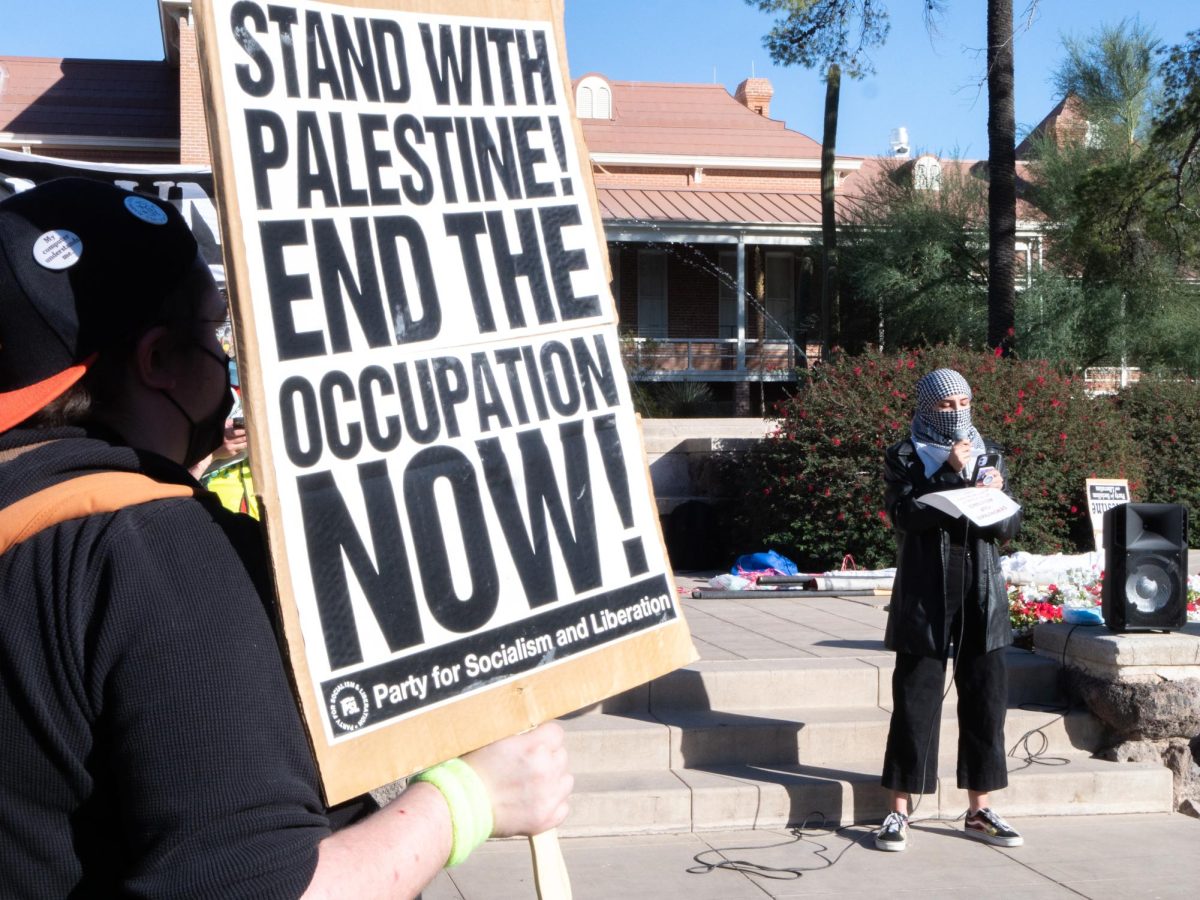You’d think with all the worries surrounding global warming and America’s addiction to foreign oil, more of us would utilize public transportation. After all, vehicles account for nearly 20 percent of global warming emissions and guzzle up over two-thirds of the oil consumed in the United States.
Still, over 97 percent of passenger trips in the U.S. are by personal automobile, despite ready access to well-developed networks of transportation services. That’s why every year even the length of the waiting list for pricey on-campus parking far exceeds the demand for U-Passes, the discounted semester or yearly pass for Tucson’s Sun Tran public bus system.
That’s too bad, because the U-Pass is a great deal: the UA pays up to 50 percent of the normal cost and you ride around all semester for under $80 – probably less than your monthly gas costs. Yet while many of us laud the benefits of public transportation, we’re embarrassingly unwilling to turn that support into an actual change in our everyday actions.
Why? We love our cars and the freedom and mobility they afford us. Dependence upon public transport means our plans could be dictated by the bus schedule. Switching to public transportation feels more like a self-sacrificing downgrade than a beneficial consumer choice. Plus, our daily trip to school or work could take much longer; the U.S. Census Bureau reported the typical driver in American cities takes 21 minutes to get from home to work while for Americans using public transport commute time went up
to 36 minutes.
We may care about the environment, but most of us value our convenience and time much more. Car pooling, public transit and biking to class seem like great ideas in theory, but the satisfaction we could gain by helping the planet pales in comparison to our aversion to dependency and time lost. Waxing on about the nefarious environmental effects of autos won’t stop the typical student commuter.
Thus, Sun Tran should take a cue from companies like Starbucks who crafted a culture around their commodity. A trip to Starbucks isn’t just buying coffee, but about the Starbucks experience, just like shopping at Trader Joe’s or Wild Oats market isn’t like stopping at Safeway or Food City. Starbucks investigated what consumers wanted and then delivered it; that’s how they made it acceptable and even desirable for us to spend several bucks on a cup of coffee.
The brains behind Starbucks envisioned making local shops “”the third place”” besides home and work where customers would spend their time and thus they filled outlets with comfortable chairs and ambient music in addition to their products.
Sun Tran doesn’t have to start playing Michael Buble and selling Mitch Albom books to push more people to ride the bus. But they could make riding the bus worth the personal loss of flexibility afforded by cars by crafting it as some kind of enriching experience.
Tucsonans and the Tucson Department of Transportation could start by diverting more funds to enhancing public transport rather than allocating hundreds of millions of dollars to inefficient, lengthy and expensive road expansions. For instance, Sun Tran would be a much more appealing alternative to students if they could check their e-mail with wireless internet, drink coffee or catch up with the morning news on their commute to school.
Such student-grabbing incentives are relatively cheap compared to the mammoth road construction projects which end up extending a mile or two of Grant by one lane. And as more students get on the bus, the less Sun Tran gets unfairly pigeon-holed as a shady vehicle exclusively for Tucson’s poor.
Admittedly, the Sun Tran harbors a fair share of irritating frustrations in the form of drunks or unwelcome come-ons; but the bus also creates an opportunity for surprising social interactions. Last week on my bus traveling down East Broadway, a brother and sister reunited after not seeing one another since the 1980s ð- purely by chance. The joyous revelry of the siblings engendered a fleeting camaraderie among all of us bus riders, thanks in large part to the animated narration by the inebriated gentleman sitting beside me.
It may have been a sappy, short-lived moment, but it’s that kind of social engagement with others that you won’t experience making a daily solo commute to school.
Jazzing up Sun Tran service, Starbucks “”third place”” style, could at least encourage students to replace some of their regular car trips with a bus ride instead. As students and Americans, we are largely motivated by incentives rather than ethics. The impracticality of running multiple errands on the bus eclipses any concern for the environment. But turning the bus into an attractive opportunity to enjoy the commute in comfort, interact with others, all while saving the planet might actually get more of us on the bus – something TDOT should especially keep in mind with the proposed light rail system currently in the works.
Christina Jelly is a senior majoring in biochemistry, economics and philosophy. She can be reached at letters@wildcat.arizona.edu.








